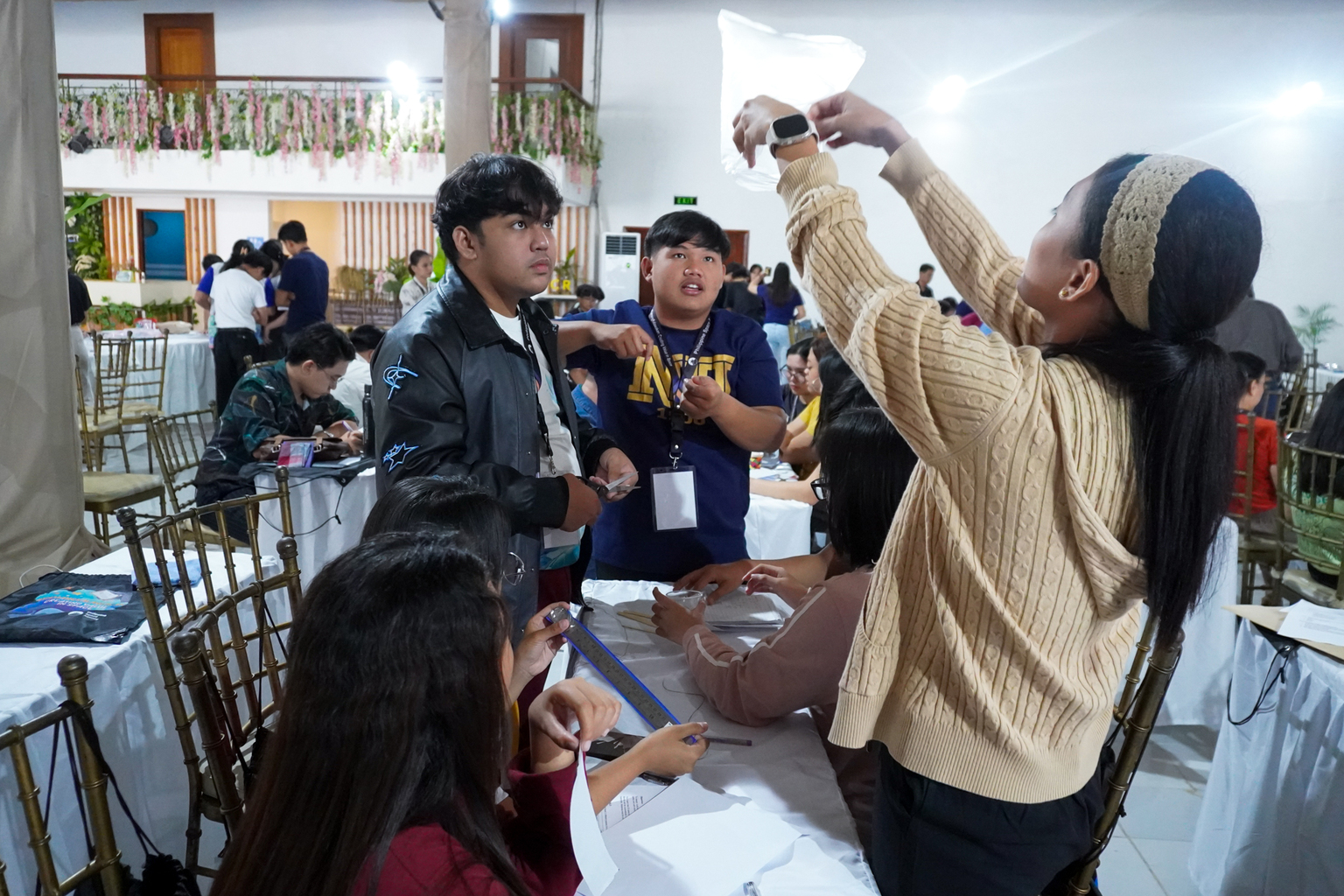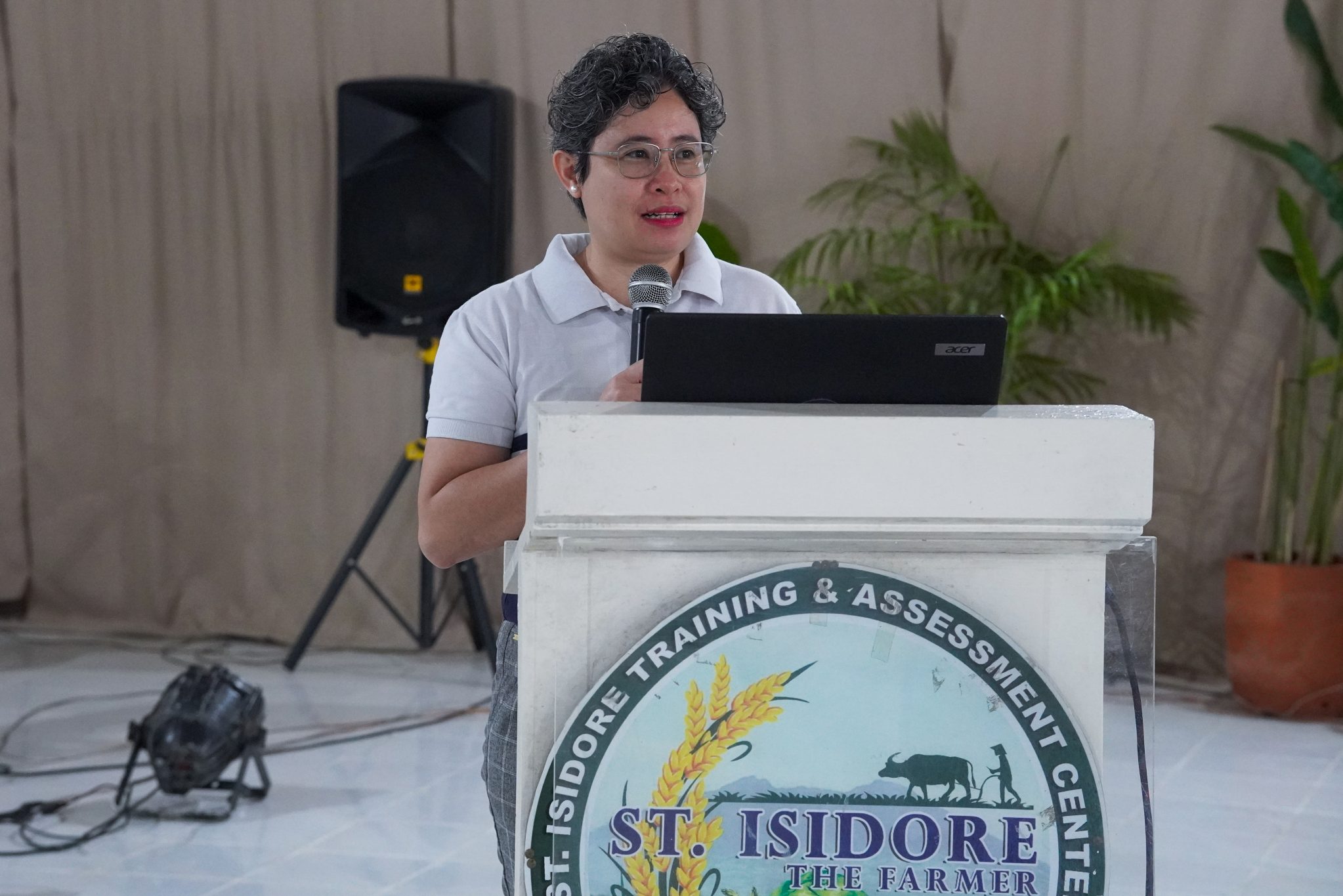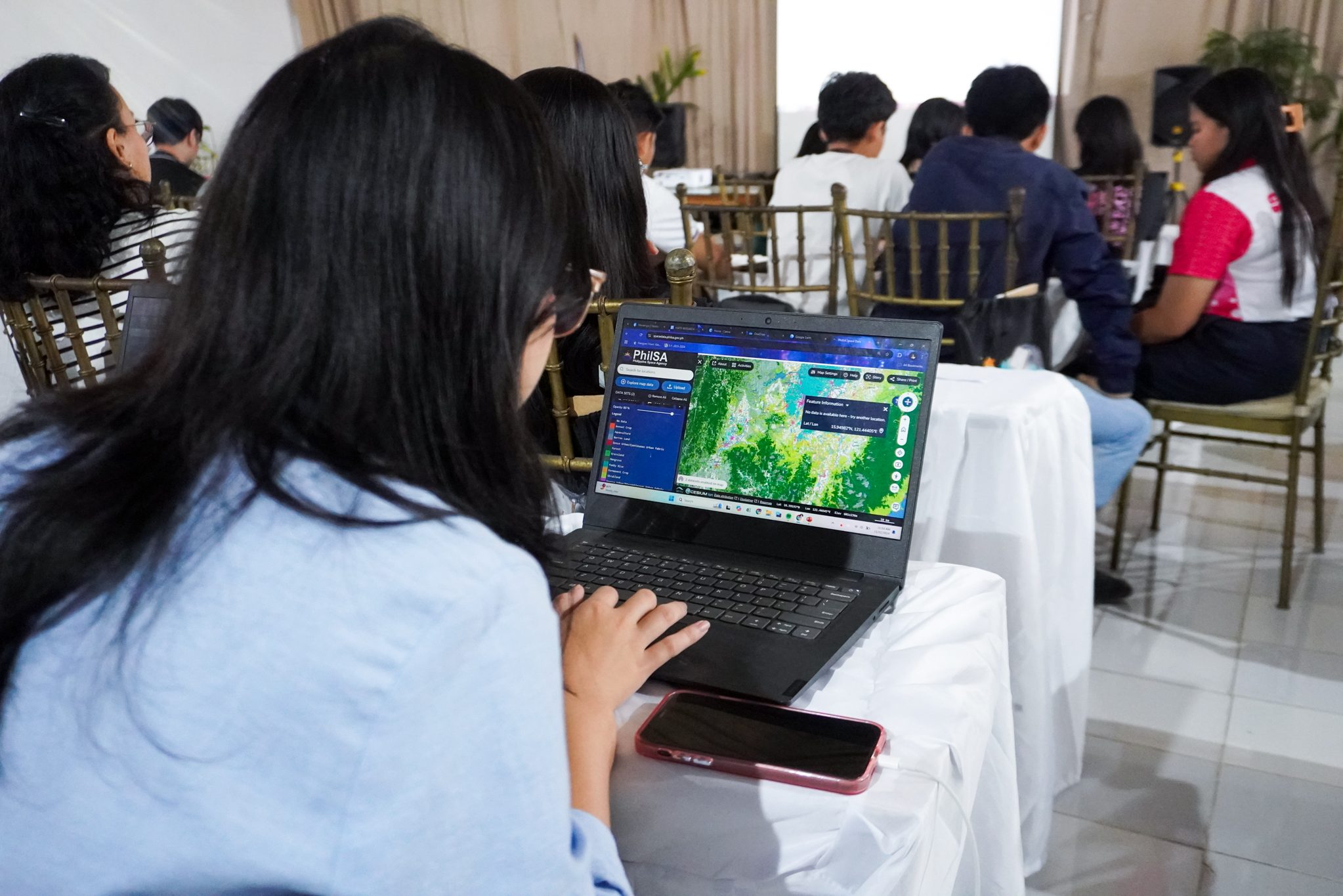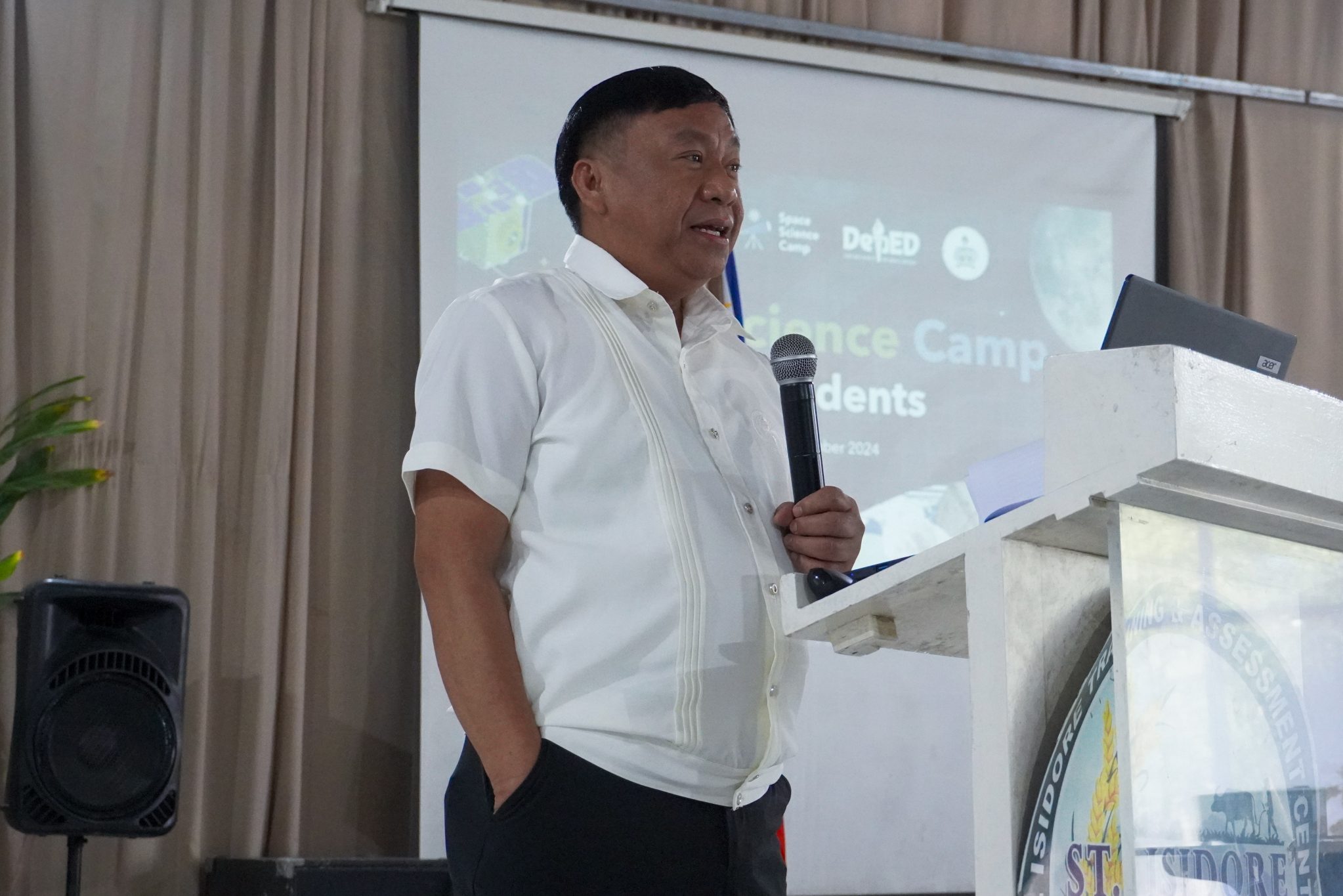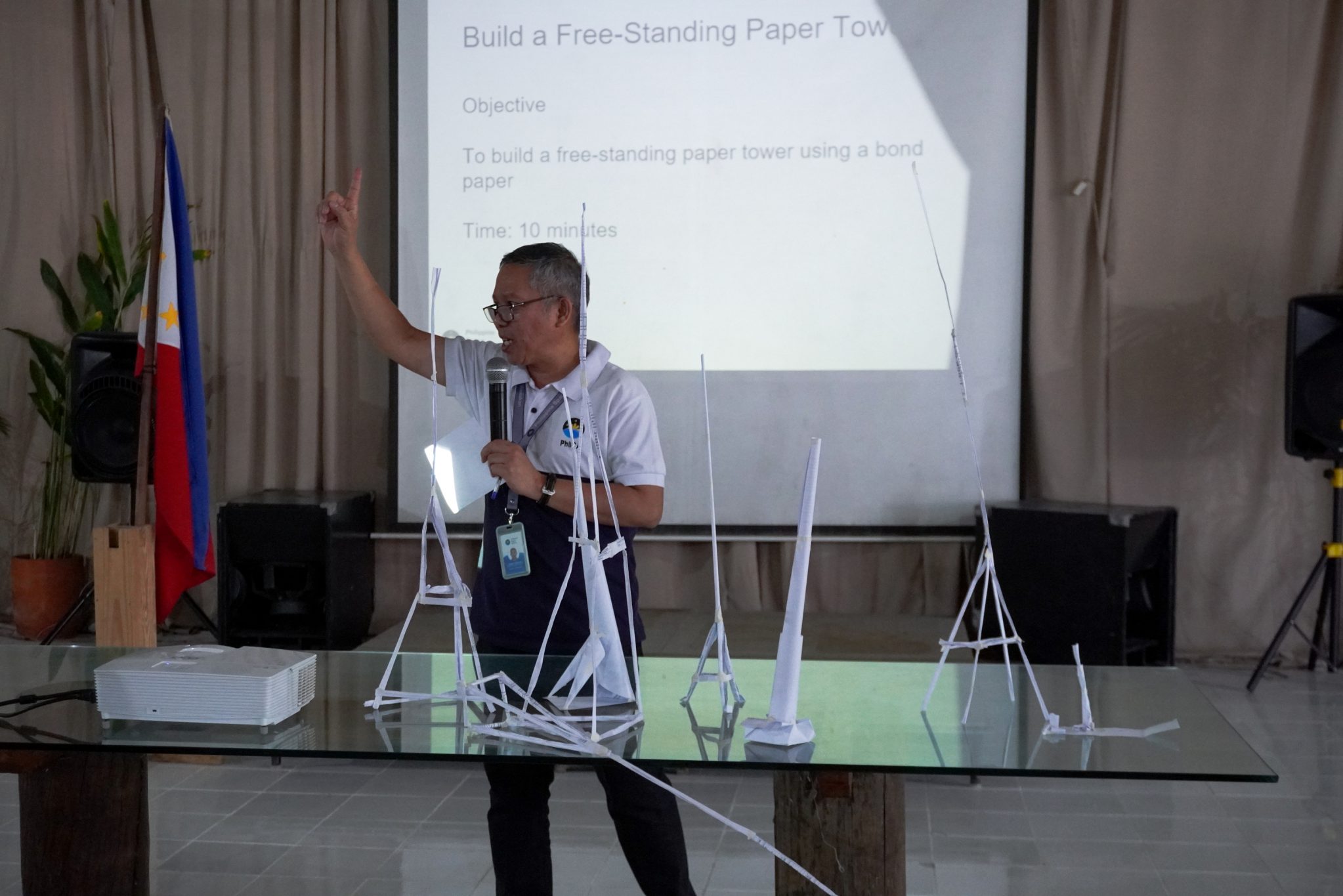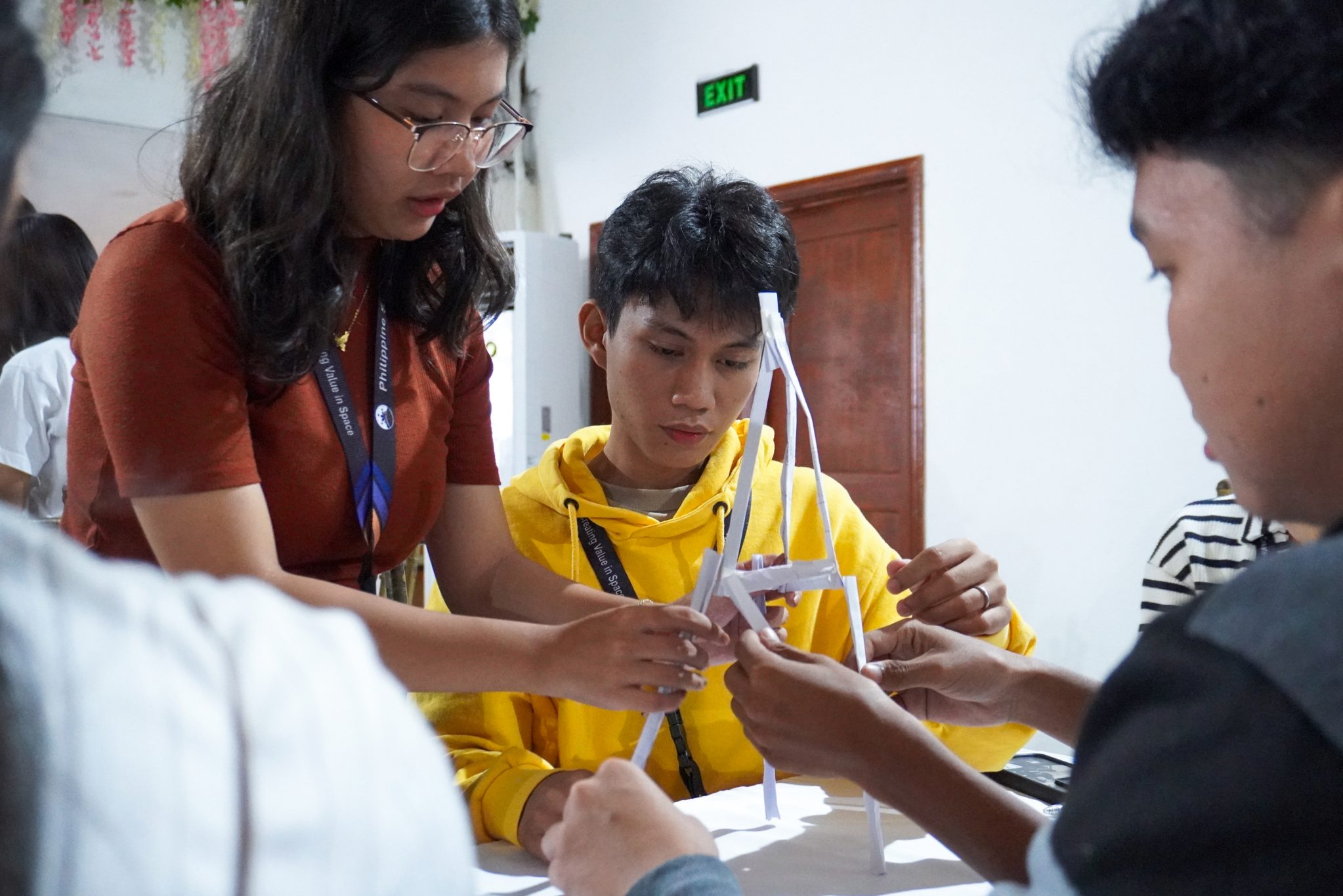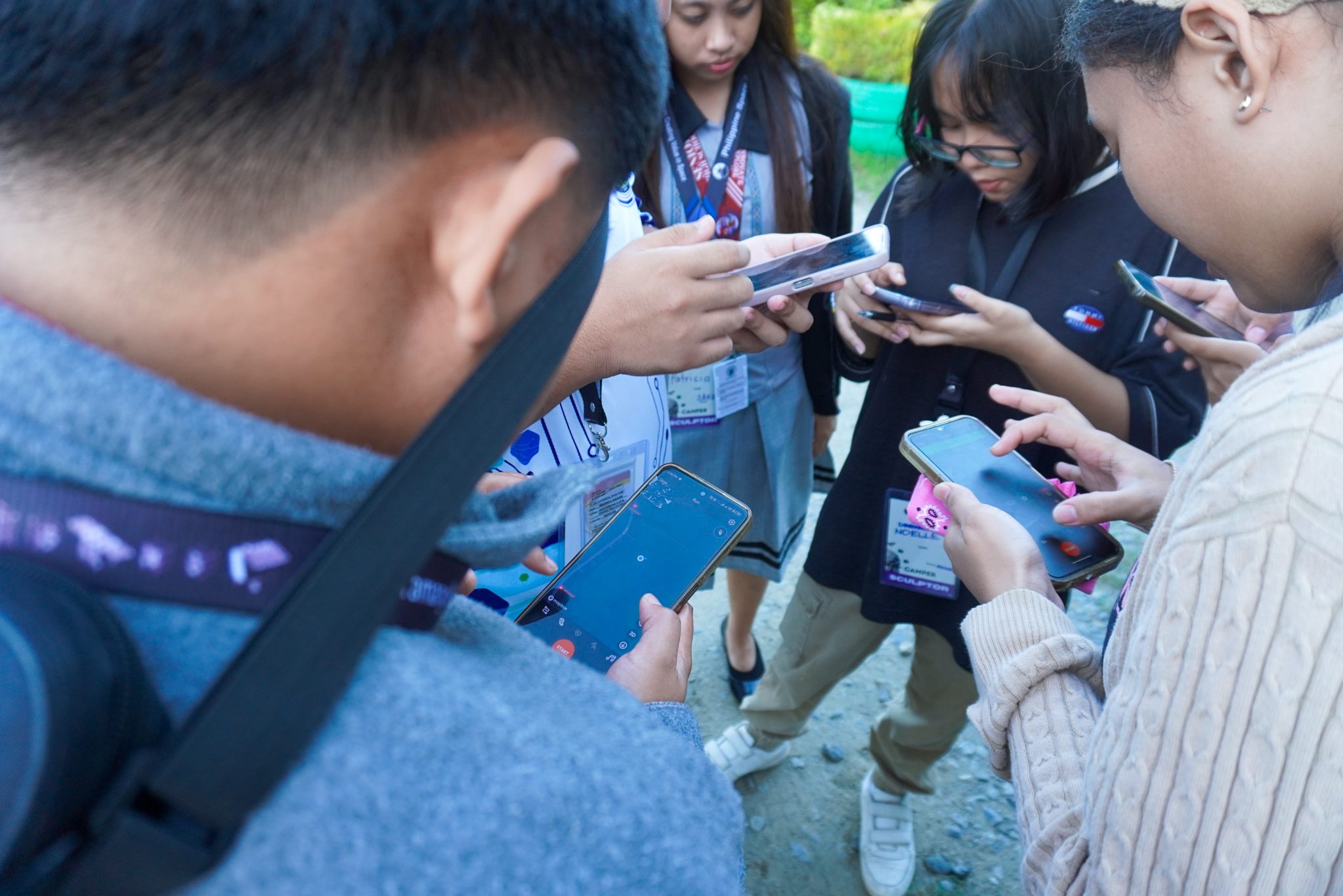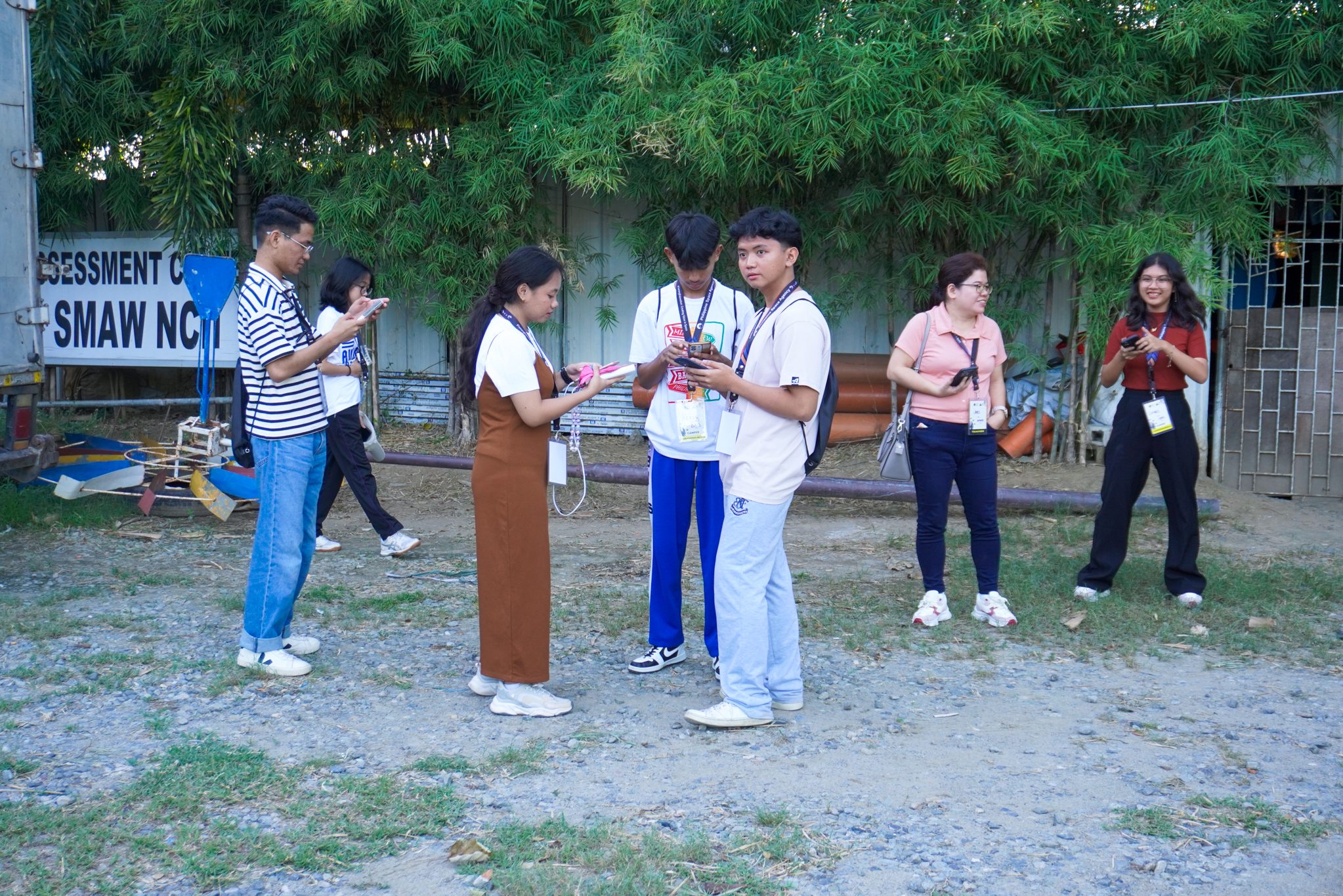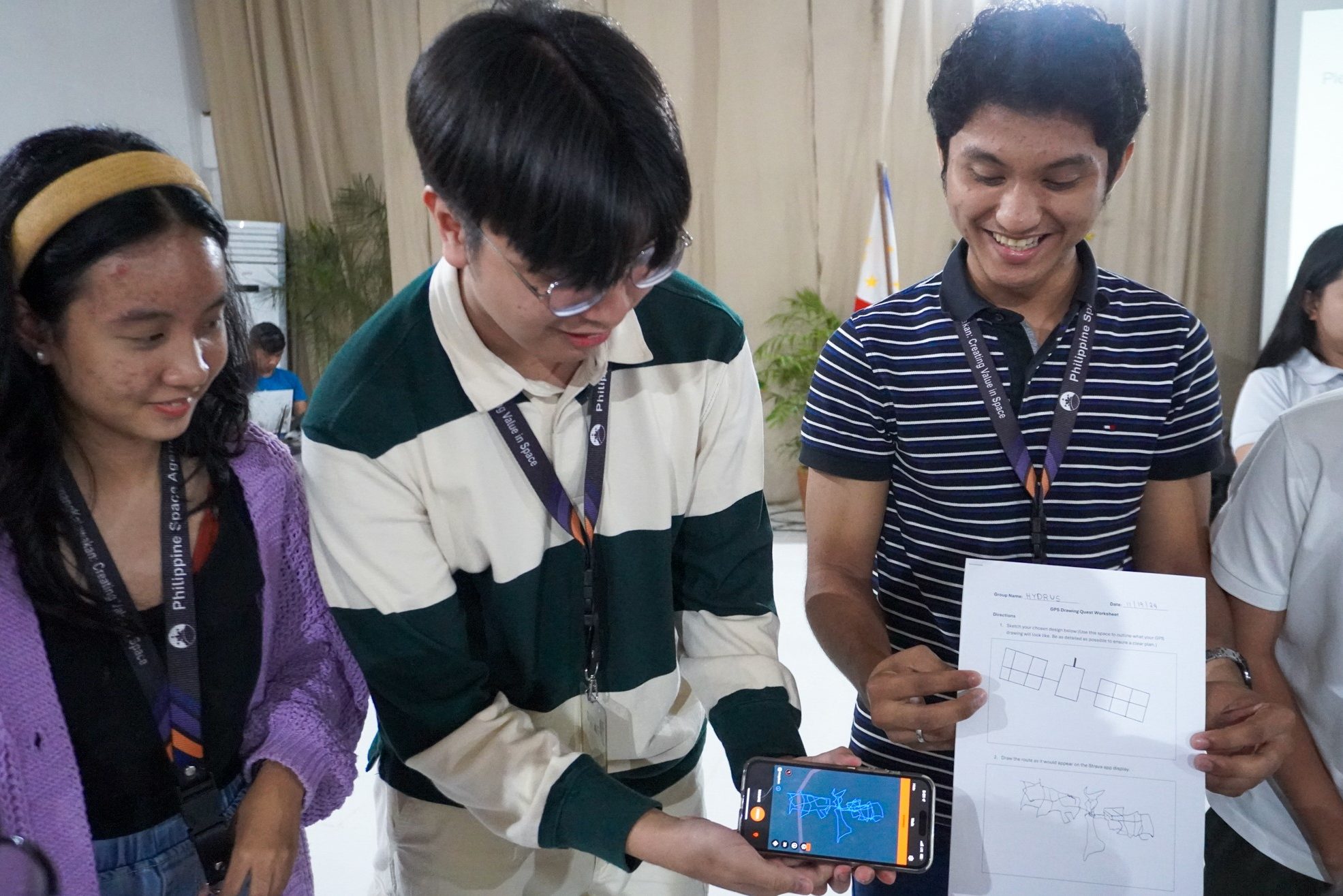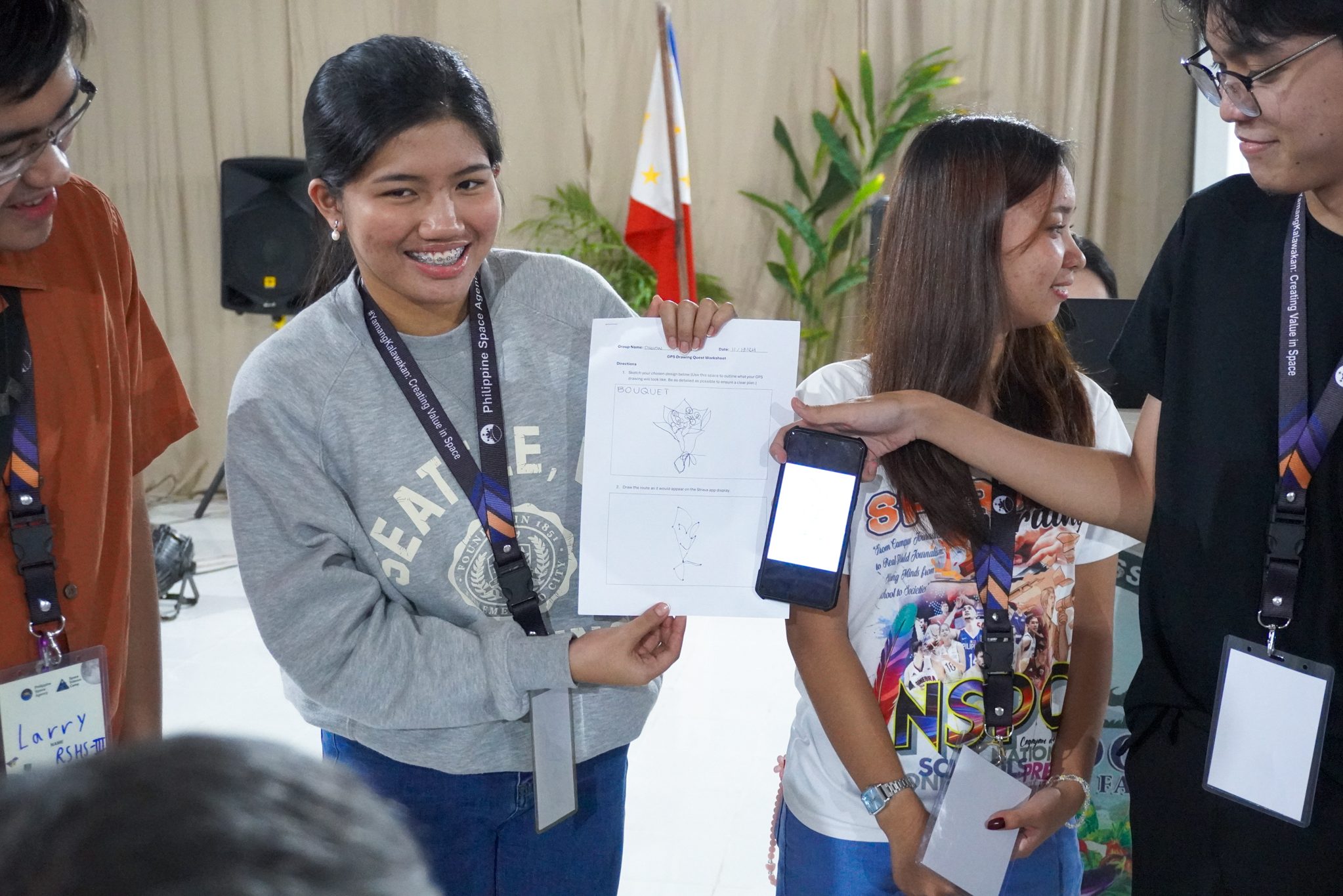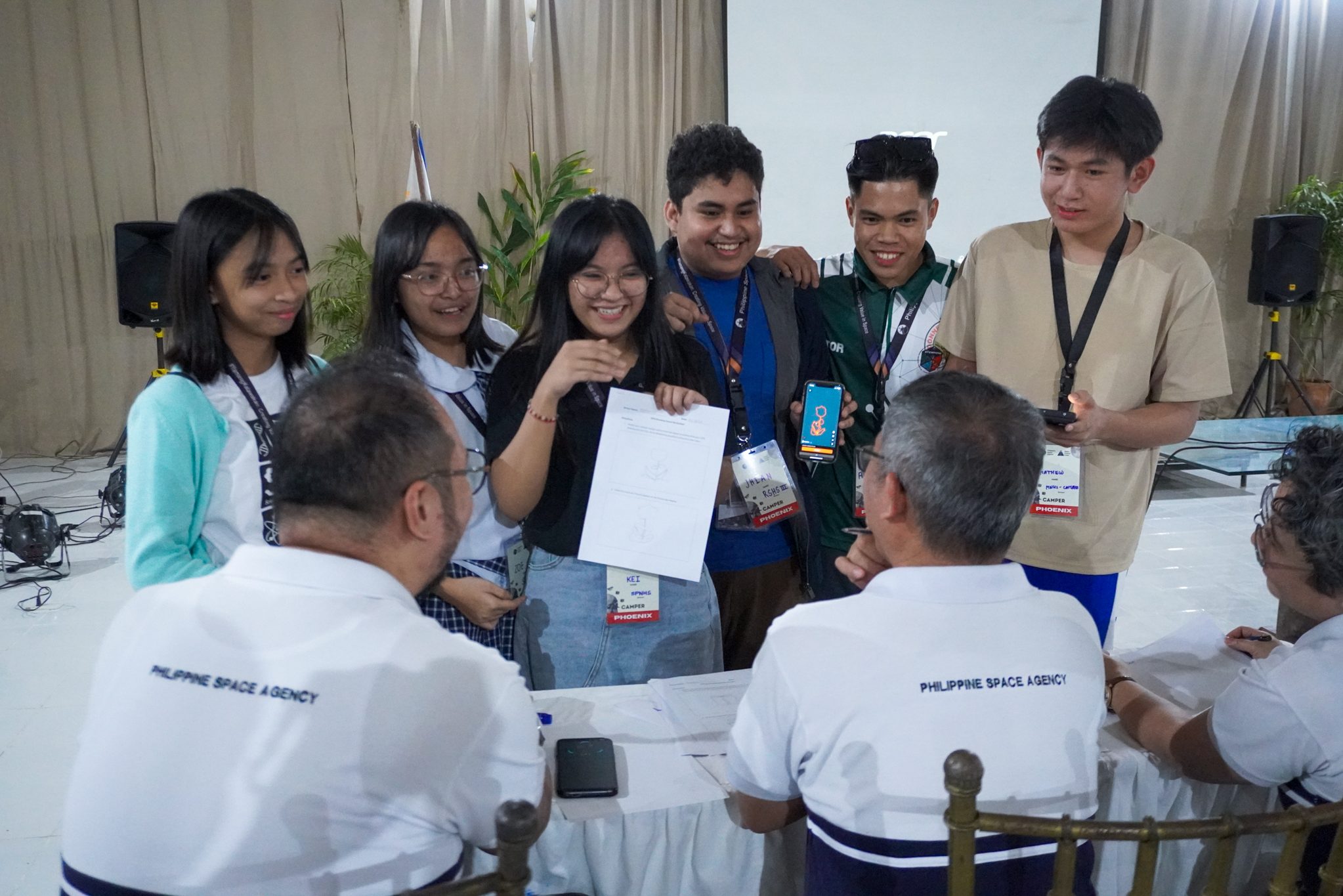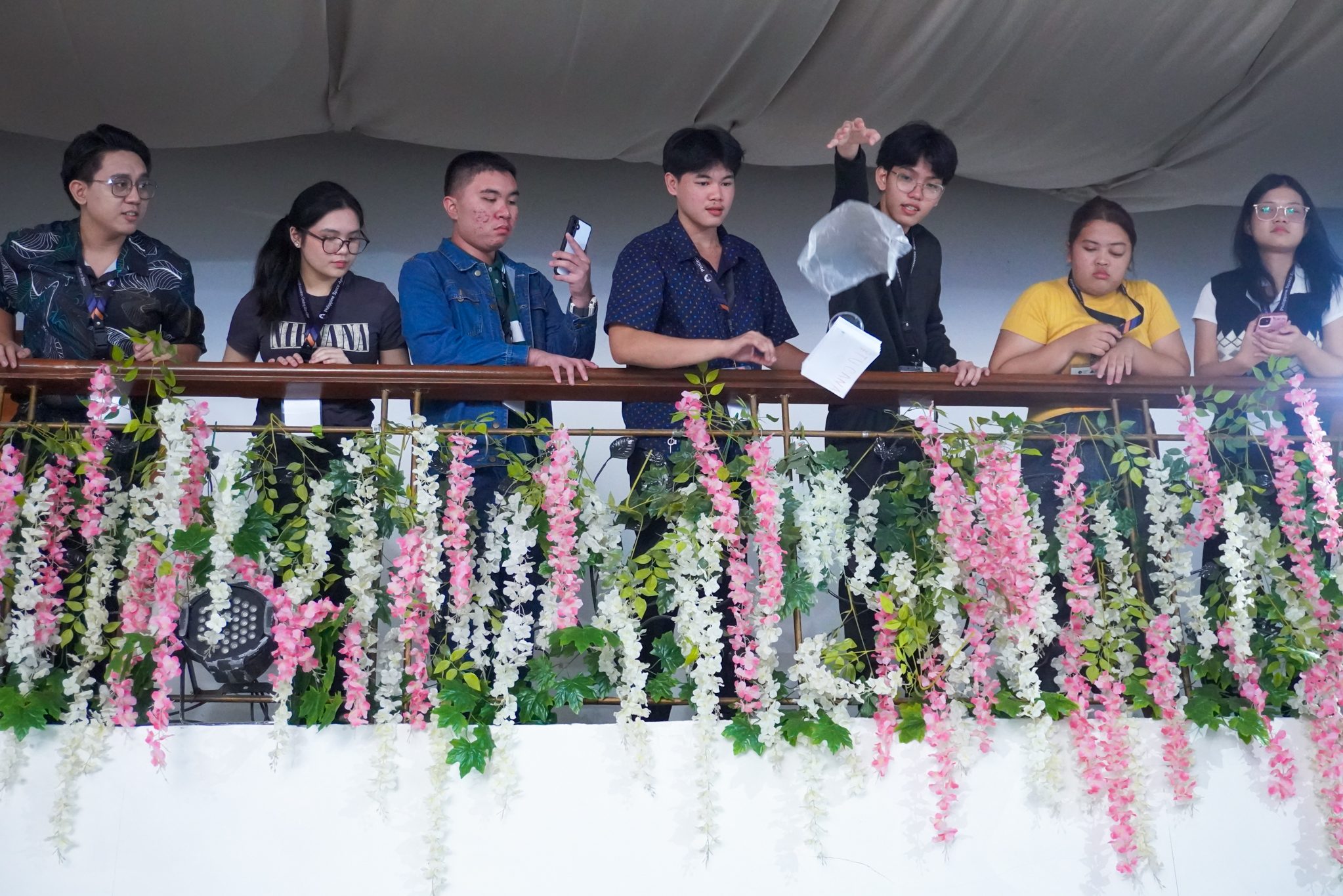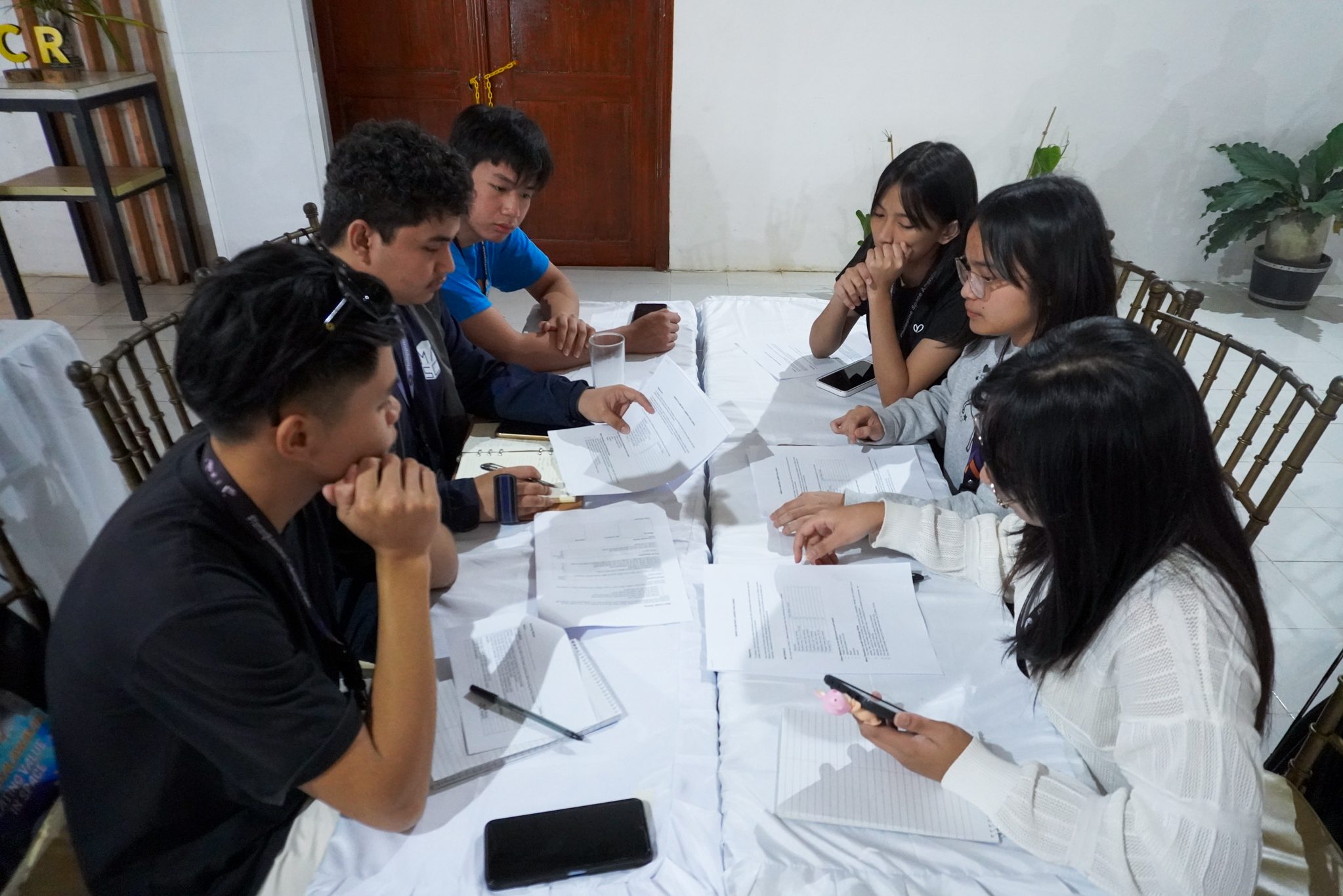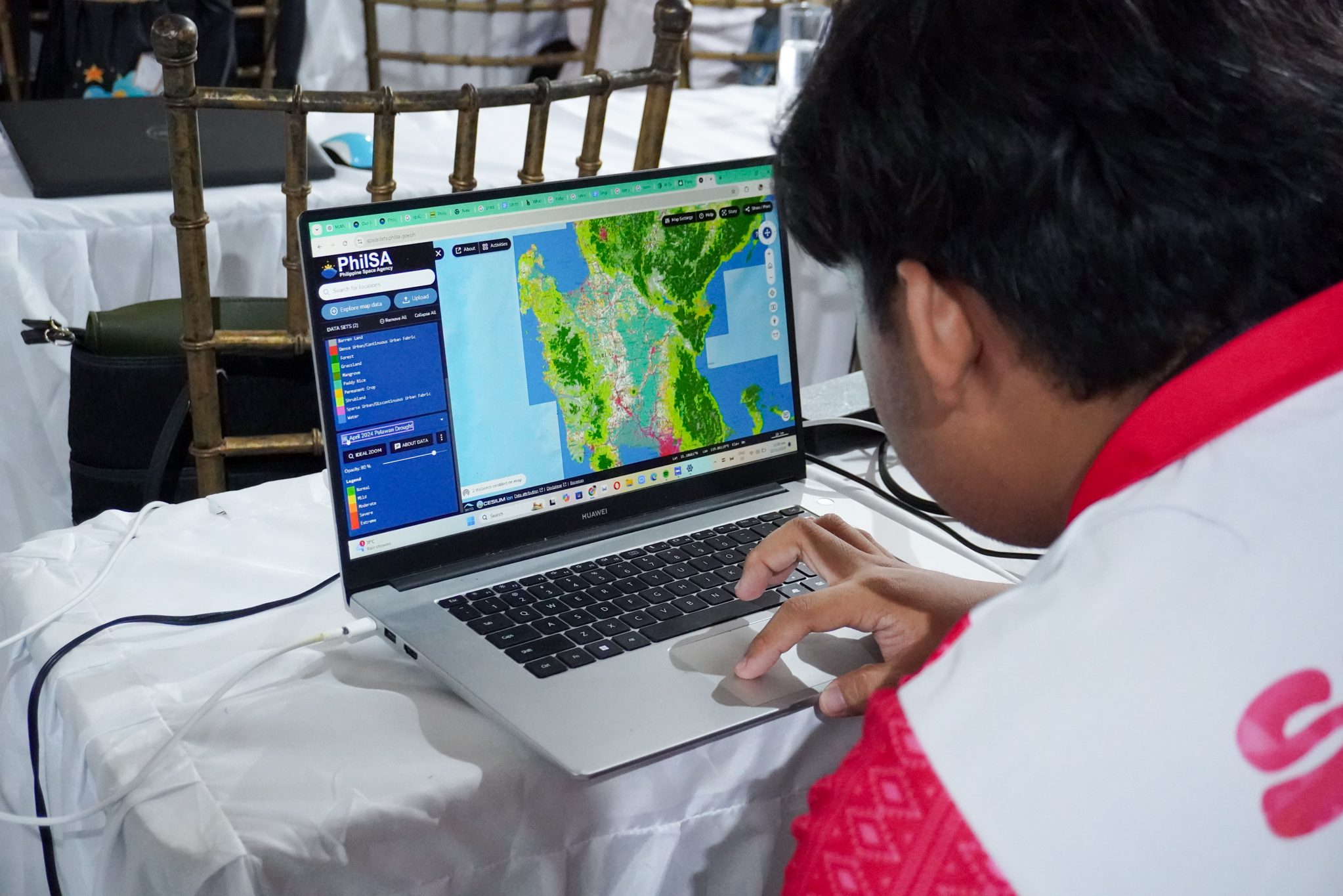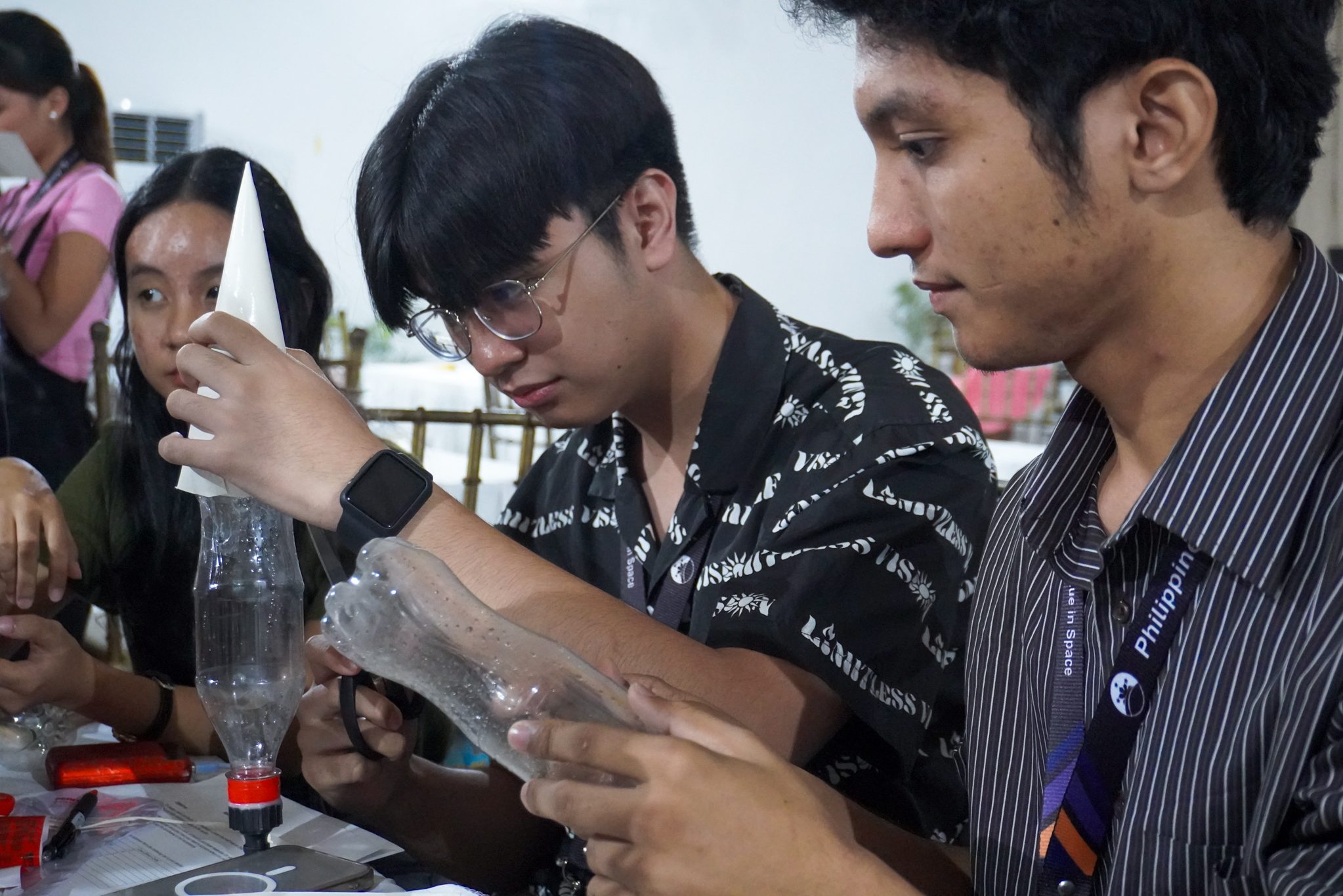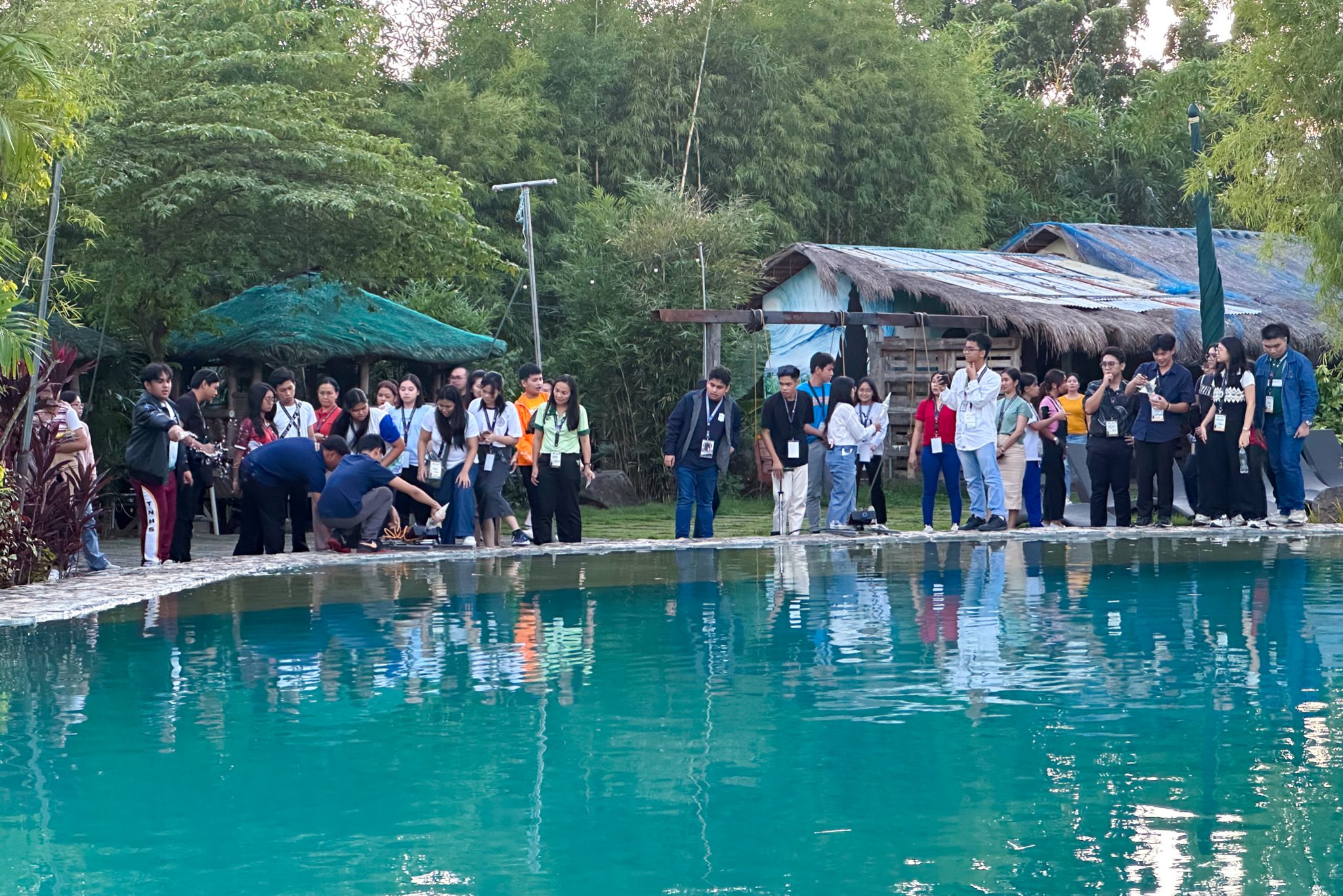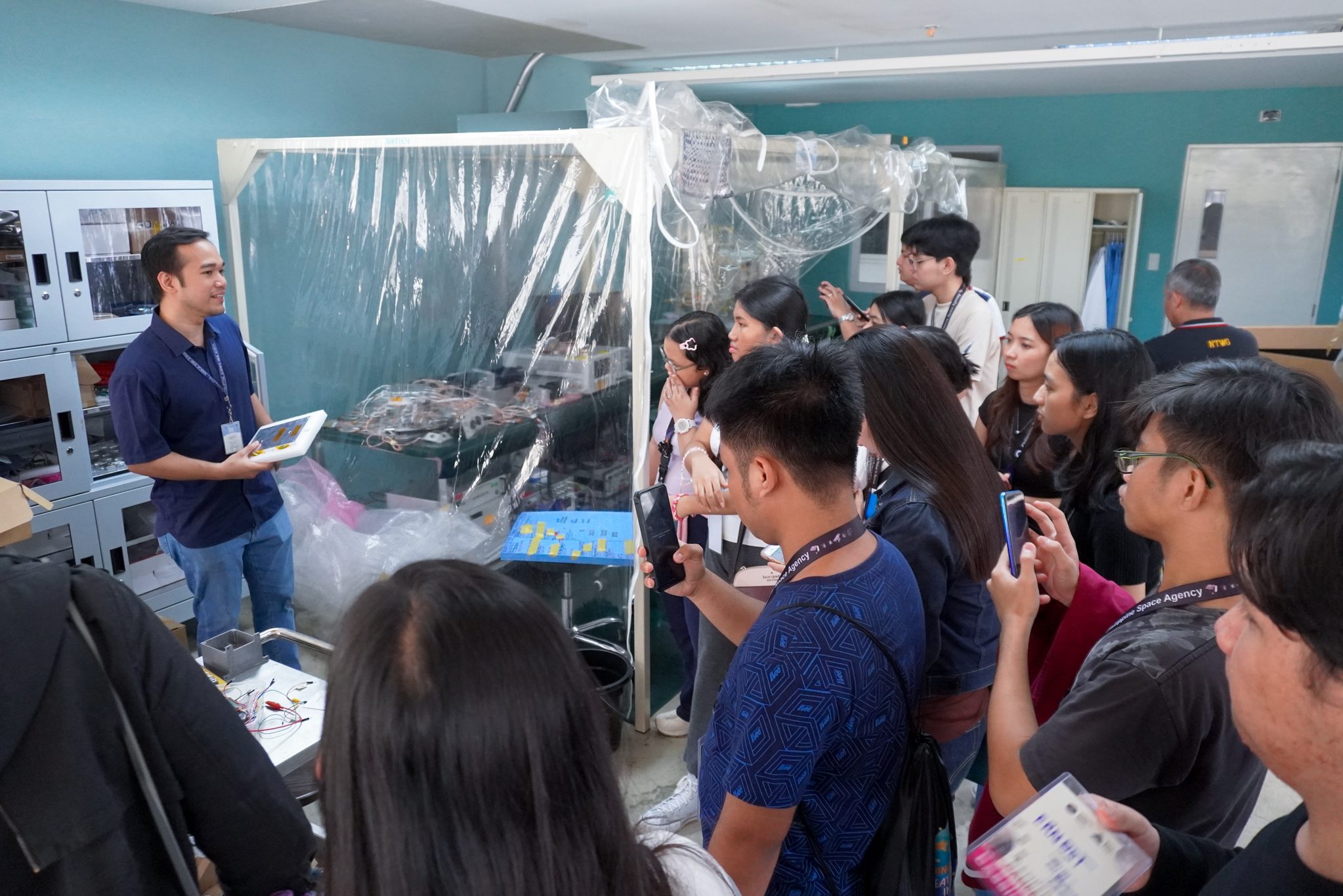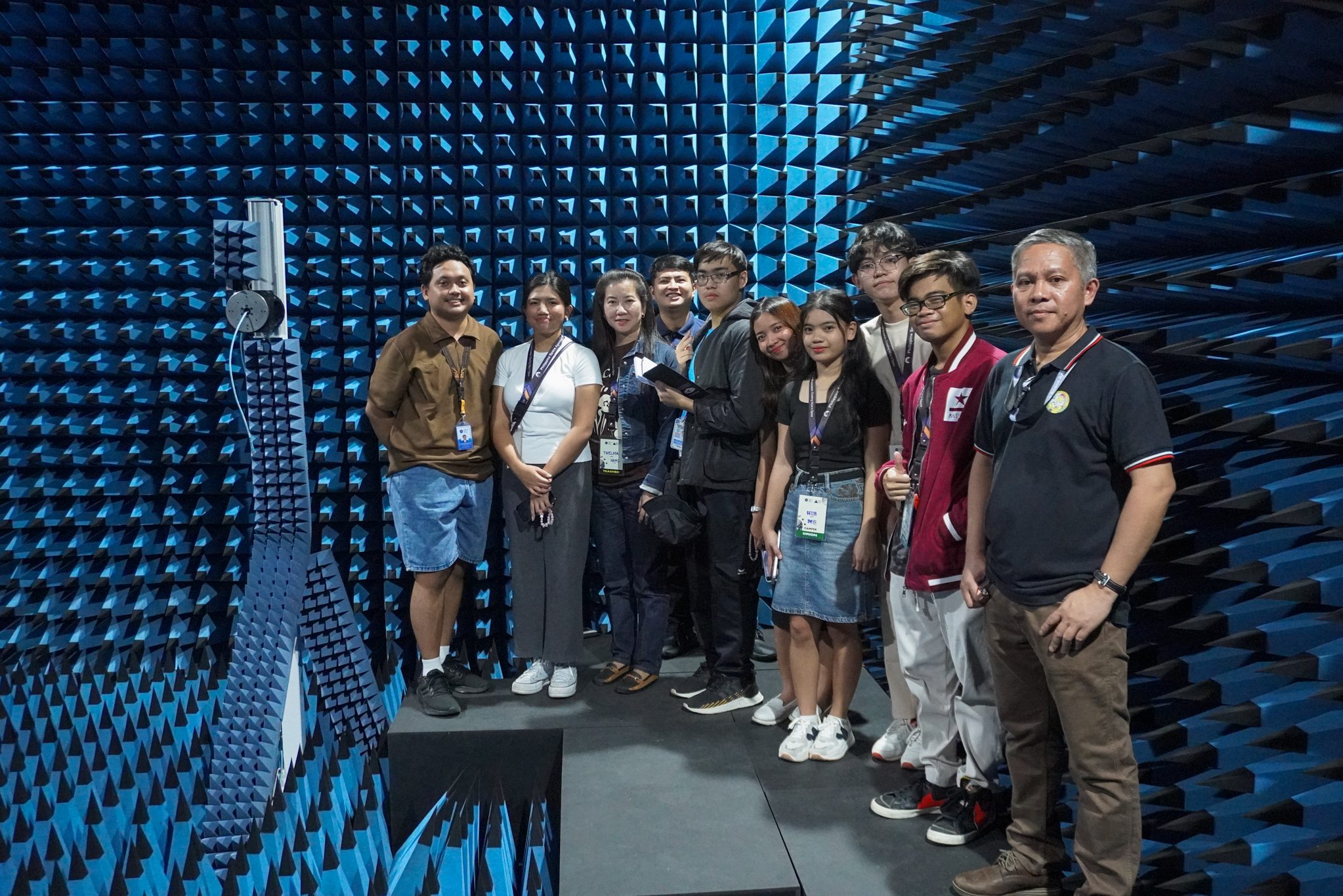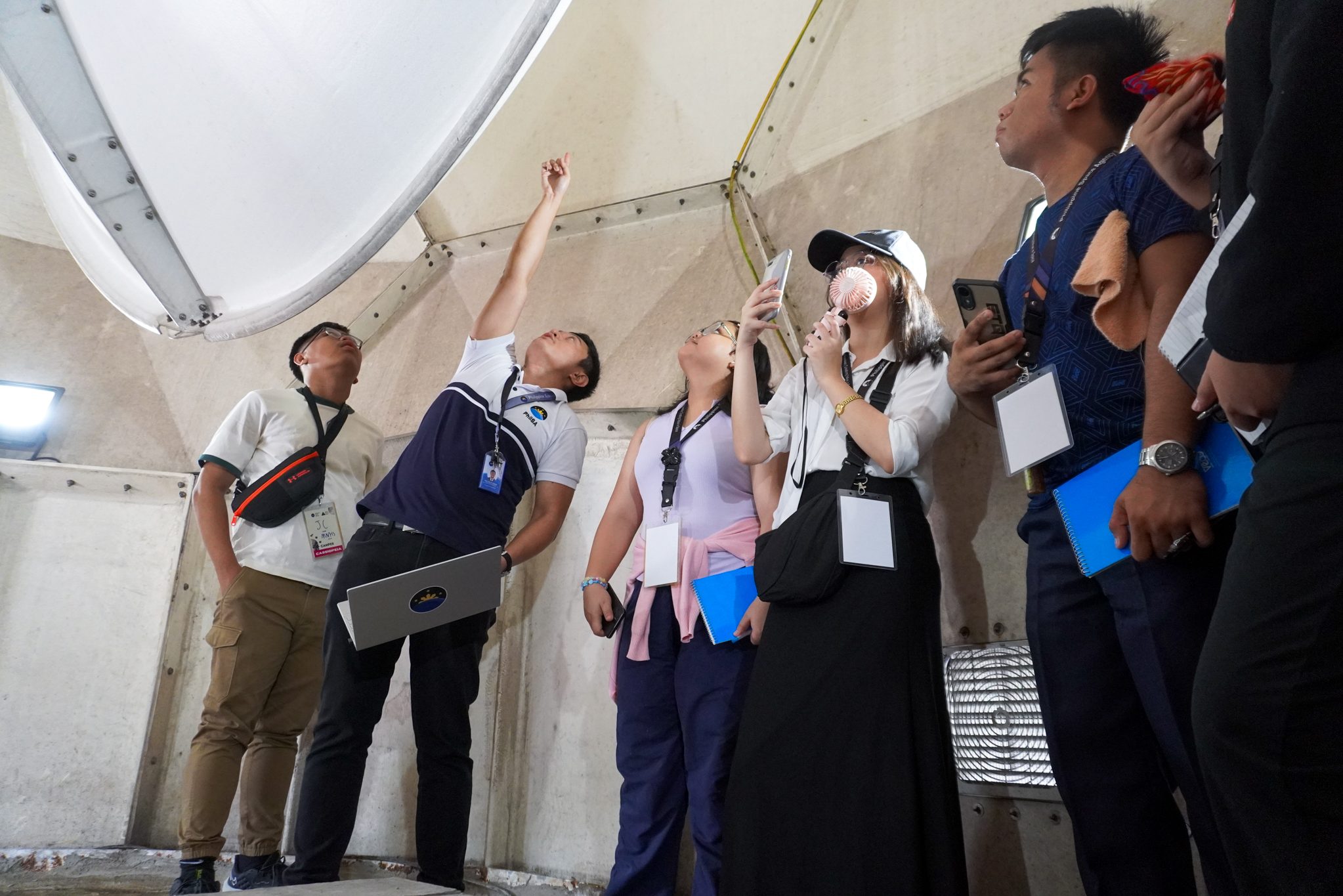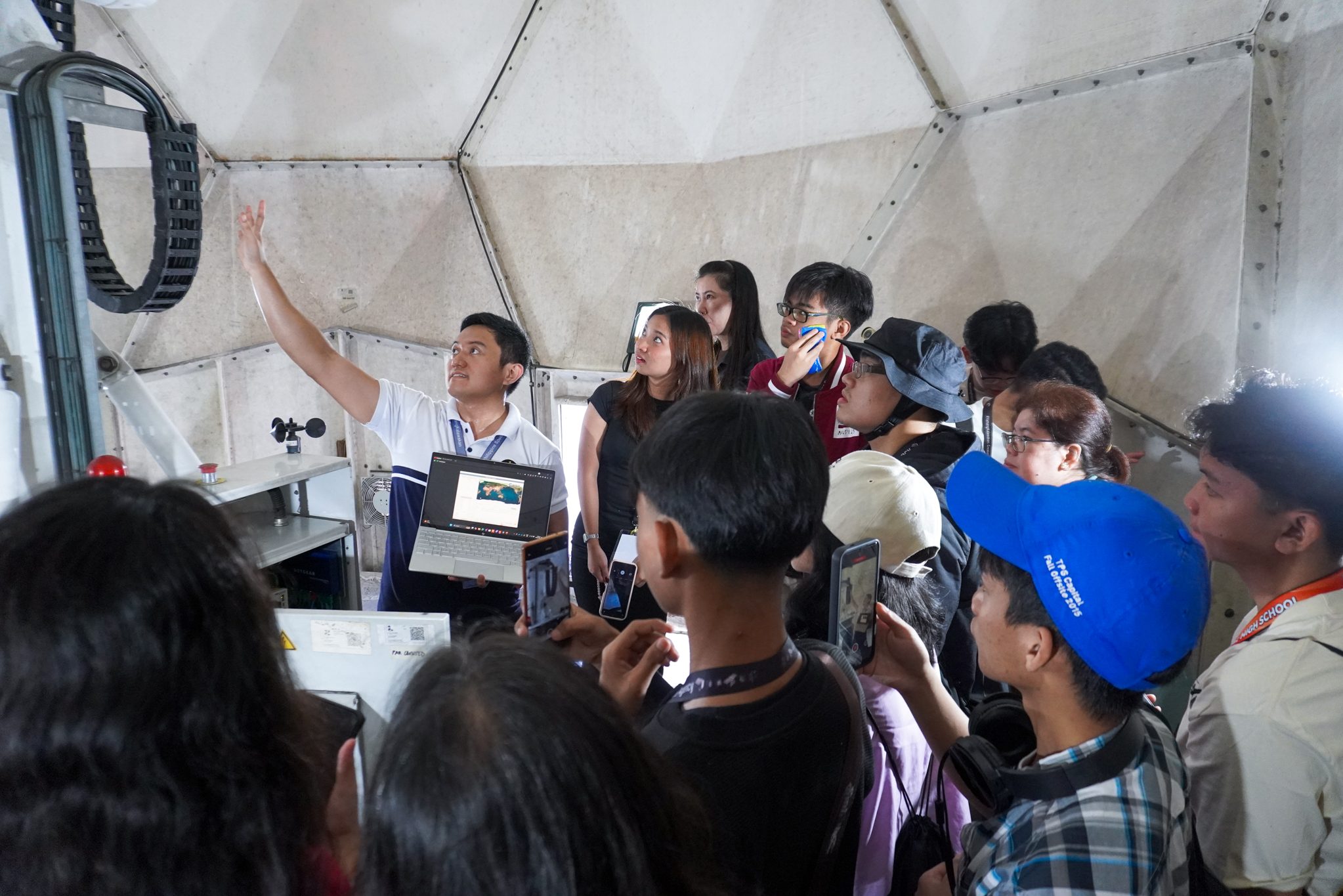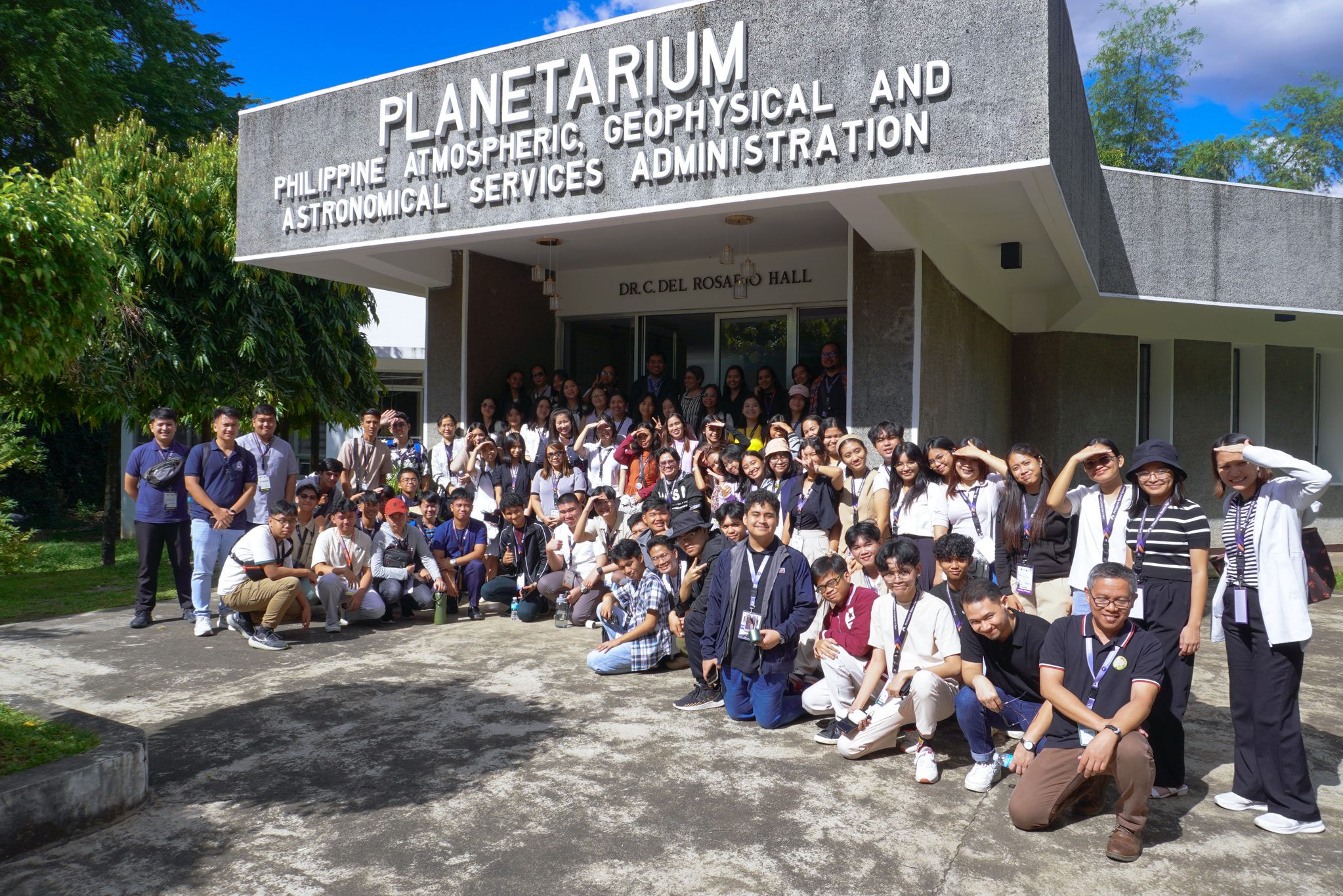The Philippine Space Agency (PhilSA) held the Space Science Camp for Students from 19 to 22 November 2024, to promote space science and technology education among learners and educators.
Fifty-seven (57) high school students and nineteen (19) STEM educators from various schools divisions of Region III engaged in exciting activities designed to enhance their understanding of space science and technology applications (SSTA) during the 4-day camp at St. Isidore the FARMer and Resort, Sta. Ana, Pampanga.
With the support of the Department of Education (DepEd), the PhilSA Space Science Camp also encouraged students to take up relevant courses fitting for a career in STEM—paving the way for a future generation of space scientists, engineers, and communicators who will drive the country’s space programs and contribute to nation-building.
Interactive learning and advancing space science education in the country
The participants learned about the applications of space technology, the missions and payloads of Philippine satellites, space systems engineering, the basics of space law and diplomacy, basics of rocketry, the KIBO ABC programs, and various opportunities in the space sector.
Hands-on workshops and educational activities related to SSTA were also implemented, which utilized common-use applications and instruments while incorporating space science and technology principles. These included engaging activities, such as a scavenger hunt utilizing a GPS and the Strava application, a planetary lander construction, and fabrication of a water bottle rocket. These activities were designed for applicability and integration in the classroom setup for effective knowledge sharing. A stargazing activity was also held in collaboration with the Rizal Technological University (RTU).
An educational tour was conducted to showcase the country’s space facilities such as the Full Anechoic Chamber (FAC) and laboratories at the University Laboratory for Small Satellites and Space Engineering Systems Building (ULyS³ES) of the University of the Philippines Diliman. Participants also visited the Ground Station of the Department of Science and Technology (DOST)-Advanced Science and Technology Institute (ASTI) and Planetarium of the Philippine Atmospheric, Geophysical and Astronomical Services Administration (PAGASA) in Quezon City.
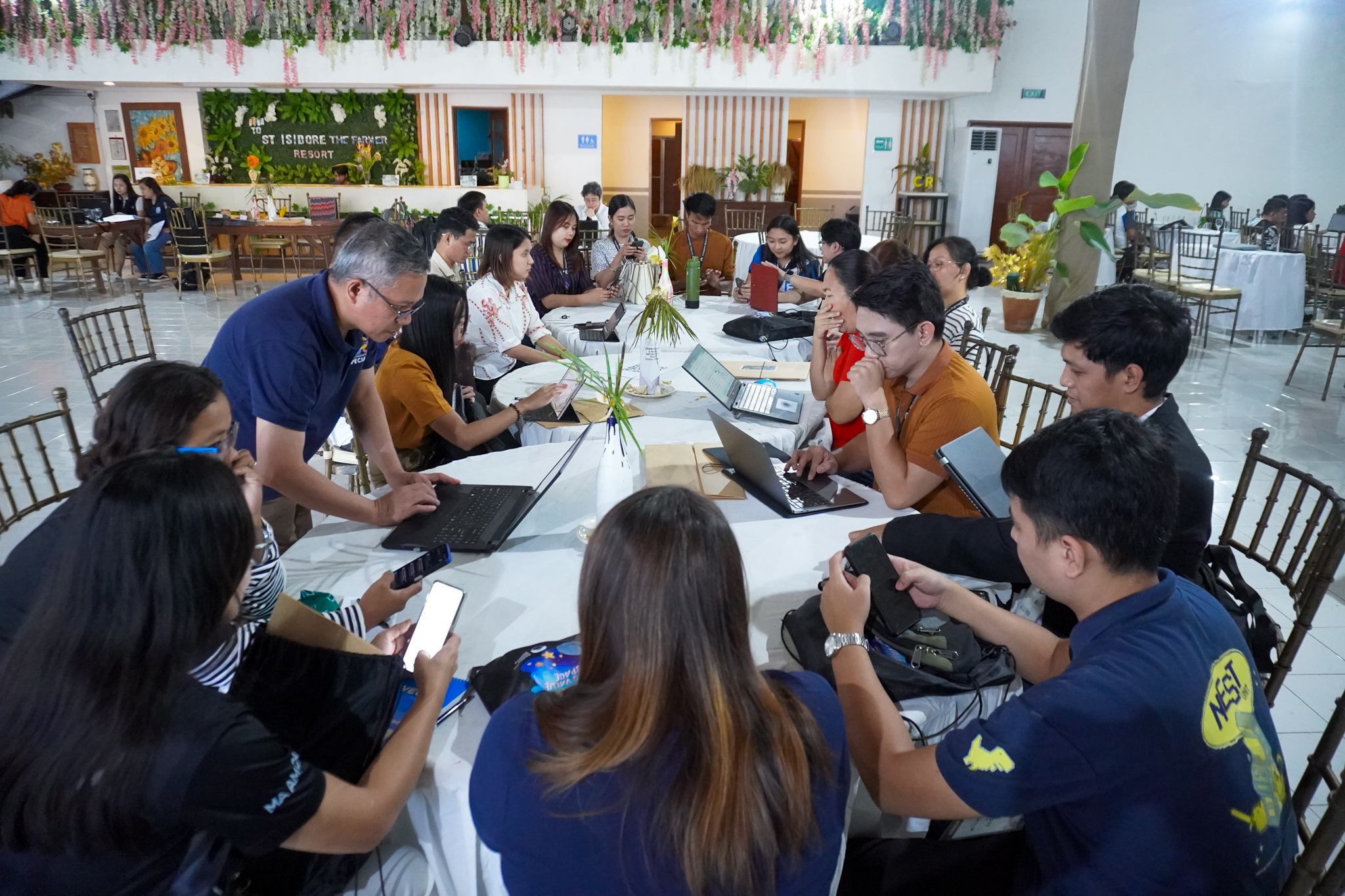
Region III STEM educators prepare an integration plan involving space science-related activities.
The various topics and lessons during the camp served as a foundation for students to generate insights for research proposals focused on SSTA, while educators prepared a work plan to integrate space science activities into instructional and teaching-related activities, aiming to enhance the country’s learning standards in space science. Similarly, the feedback from participants will be utilized in PhilSA’s learning programs to identify the necessary support for the space science-related needs in basic education.
Graciel Delos Reyes, a student from the Tarlac National High School, shared her impressions of the 4-day camp. “I would like to thank PhilSA for organizing this event. It made me, and I’m sure everyone else here, more knowledgeable about the world around us and the world of space. I hope that you PhilSA will continue to spread this kind of awareness and information to more students like me.”
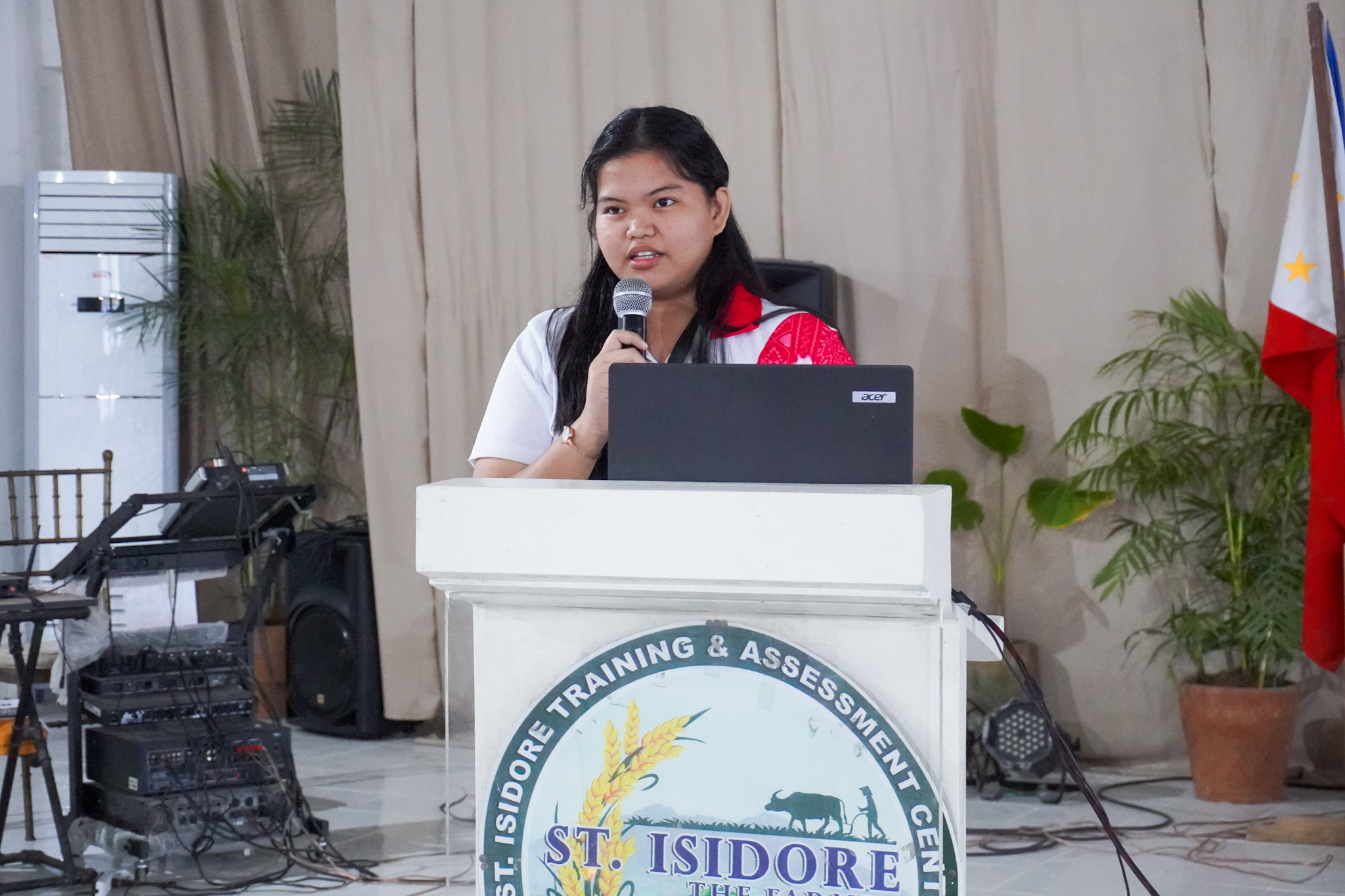
Graciel Delos Reyes of Tarlac National High School
Muhammad Assad Ullah Bhatti of the City of San Jose del Monte National High School encouraged his fellow students to share what they have learned to others. “Our education is a privilege, but it is also a responsibility—our responsibility to not let our discoveries and knowledge end with ourselves but share it with others. So, as we depart from the four corners of this room, let us not deny our newfound ideas to the world, and let us ignite the flame of curiosity among future generations of scientists and nation builders.”
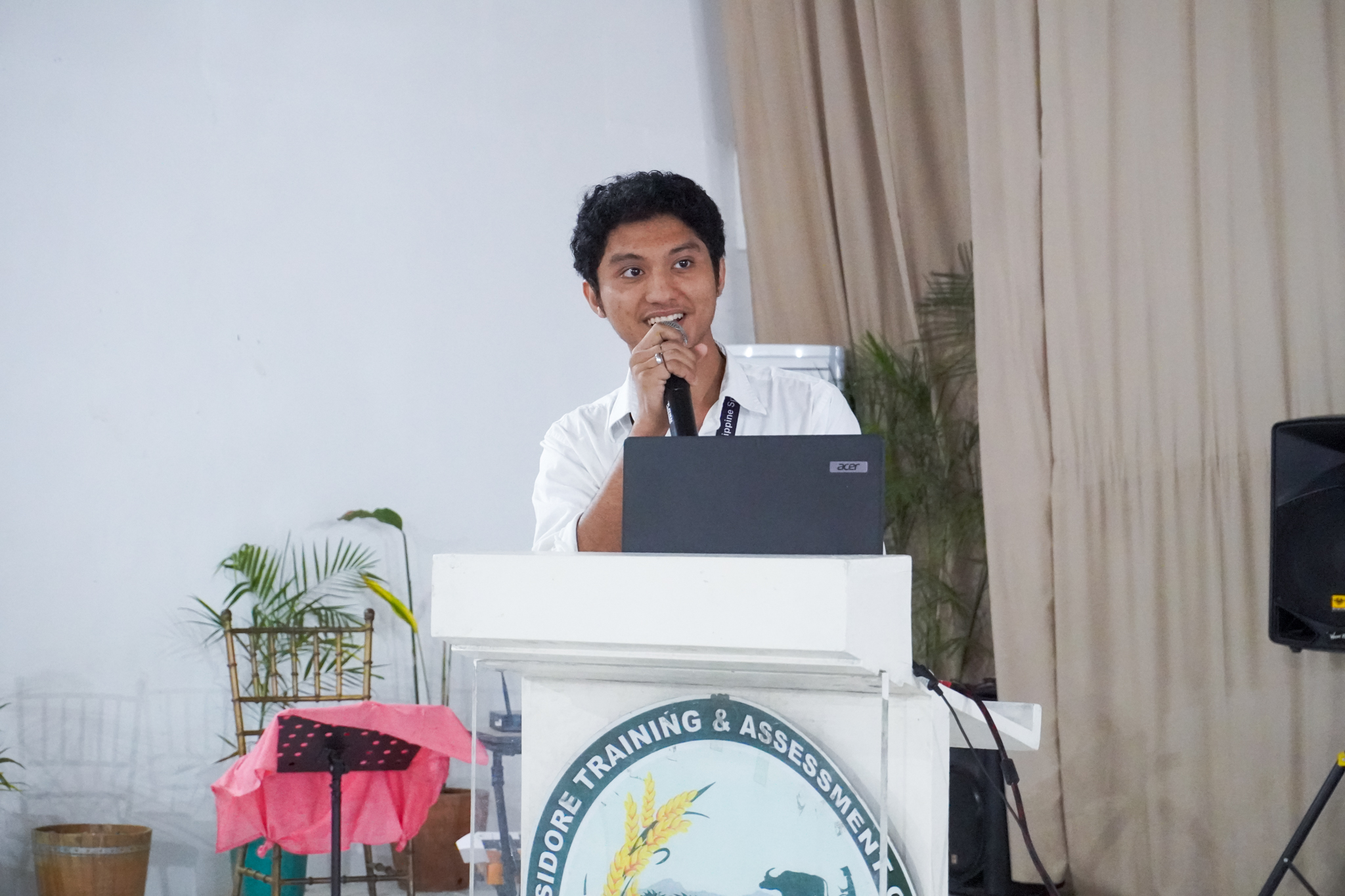
Muhammad Assad Ullah Bhatti of the City of San Jose del Monte National High School
William Jefferson Tayamora of the City of San Jose del Monte National Science High School urged his fellow educators to cultivate the next generation’s passion in space. “[PhilSA has] equipped us, not only with tools and strategies, but also with a renewed sense of purpose. Parang ako na, I am considering na mag-space science career.”
([PhilSA has] equipped us, not only with tools and strategies, but also with a renewed sense of purpose. Take me, for example, I am considering changing to a space science career.)
Let us reiterate to our respective schools, let us bring with us the vastness of the cosmos and the values it teaches curiosity, perseverance, and the audacity to explore uncharted territories. Let us inspire our students to dream big, to look at the stars, and to see endless possibilities. Thank you, and may we continue to be shining beacons for the future explorers of the universe.”
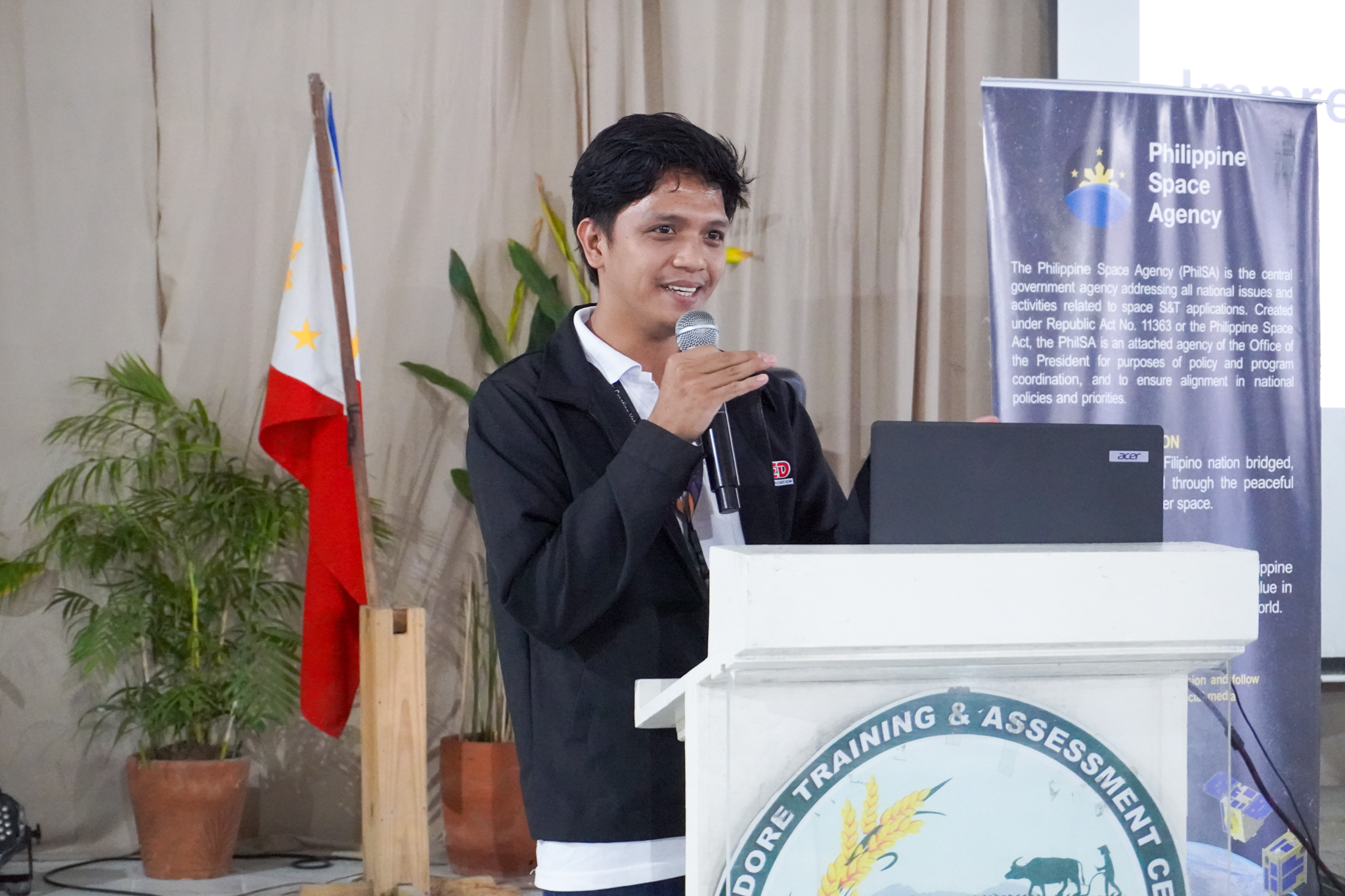
William Jefferson Tayamora of City of San Jose del Monte National Science High School
A total of 19 schools joined this year’s Space Science Camp, namely: Angeles City Science High School, Bataan National High School Senior High School, Biaan Aeta Integrated School, Camachiles National High School, City of Malolos Integrated School – Sto. Rosario, City of San Jose del Monte National Science High School, Maliwalo National High School, Mariano Ponce National High School, Mariveles National High School – Camaya Campus, Muñoz National High, School Main – Junior High School, Nueva Ecija High School, O’Donnell High School, Olongapo City National High School, Regional Science High School III, Sapang Palay National High School, Sta. Ana National High School, Sto. Cristo Integrated School, Subic National High School, and Tarlac National High School.
As part of its Space Education and Awareness Program (SEAP), PhilSA is targeting the further expansion of the space science camp to other regions of the country within the following years. In September 2023, PhilSA held a Space Science Camp for Educators, capacitating select teachers from pilot schools. These schools also received SSTA kits earlier in the year.




